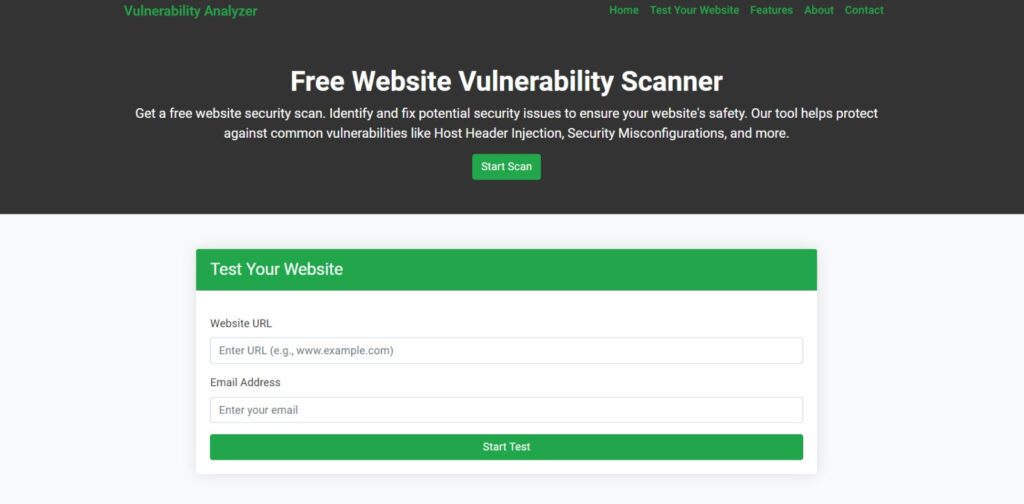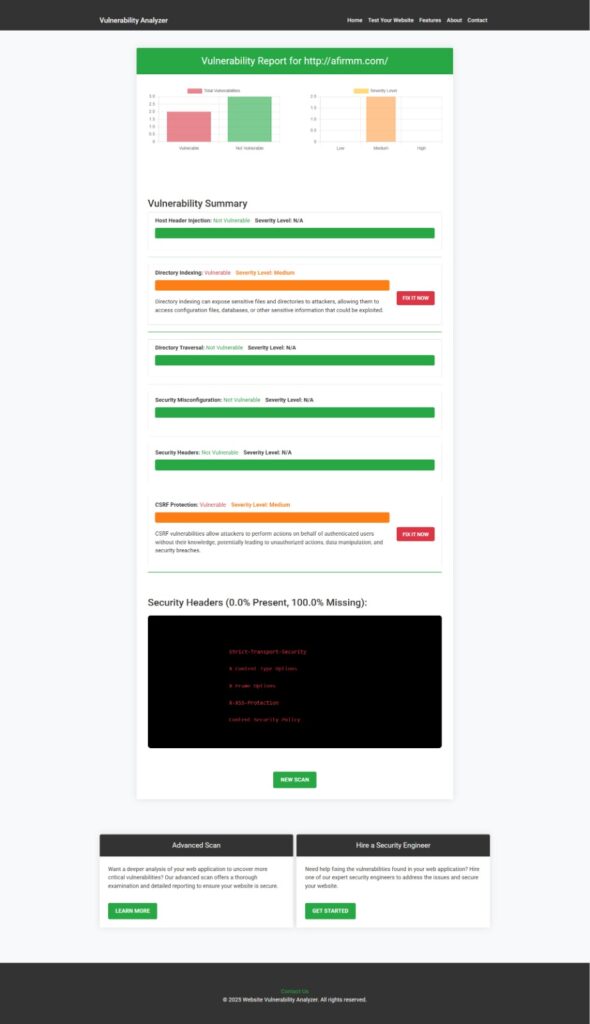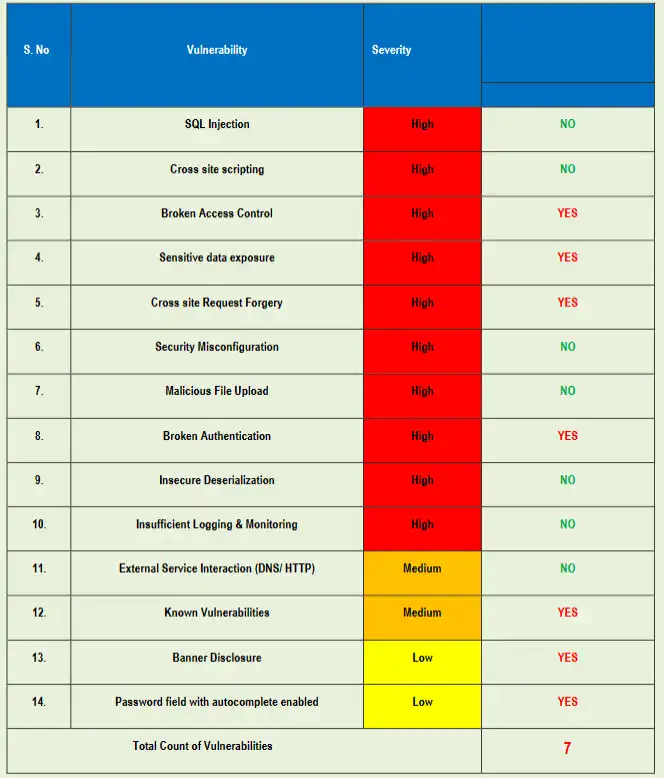🔒 7 Powerful Ways to Prevent Business Logic Vulnerabilities in Laravel
Business logic vulnerabilities in Laravel are among the most devastating yet overlooked web application security issues. Unlike SQL injection or XSS, these flaws don’t exploit technical bugs — instead, they exploit flawed business rules or workflows in your application.
In this guide, you’ll learn:
✅ What business logic vulnerabilities are.
✅ Real-world examples in Laravel.
✅ 7 actionable ways to prevent them.
✅ Related tools, resources, and services to secure your Laravel apps.

We’ll also include coding examples, screenshots of our free vulnerability scanner, and links to relevant cybersecurity guides from PentestTesting and Cybersrely.
What Are Business Logic Vulnerabilities in Laravel?
Business logic vulnerabilities in Laravel occur when an attacker manipulates workflows or logic rules to gain unauthorized benefits, such as:
- Skipping payment steps.
- Accessing admin-only functionality.
- Abusing discounts or referral programs.
- Manipulating inventory management.
These flaws happen because the code assumes users will behave as expected — which attackers never do.
📷 Screenshot: Our Free Vulnerability Scanner Tool

Use our Website Vulnerability Scanner to find common flaws in your Web/App platform instantly.
7 Proven Solutions to Prevent Business Logic Vulnerabilities in Laravel
1️⃣ Validate Input Beyond Form Requests
Laravel’s FormRequest is powerful, but it only ensures input validity, not business rule correctness.
Example: A coupon field allows a discount > 100%.
// Controller method
public function applyCoupon(Request $request)
{
$coupon = Coupon::where('code', $request->code)->first();
if (!$coupon || $coupon->discount > 50) {
abort(400, 'Invalid or abusive coupon');
}
// apply coupon
}✅ Always double-check values even after validation.
2️⃣ Prevent Mass Assignment Abuse
Business logic vulnerabilities in Laravel often arise from careless mass assignment.
Attackers may set unintended fields in a form.
// Wrong
User::create($request->all());
// Correct
User::create($request->only(['name', 'email', 'password']));Use $fillable on your models.
3️⃣ Enforce Server-Side Workflow Validation
Never trust client-side flow. Even if a user disables JavaScript or skips steps, the server must enforce the correct sequence.
if (!session()->has('checkout_started')) {
abort(403, 'Invalid workflow');
}4️⃣ Apply Role & Permission Checks
Even in authenticated flows, validate user roles explicitly.
if (!auth()->user()->hasRole('admin')) {
abort(403, 'Admins only');
}Consider using spatie/laravel-permission for robust RBAC.
5️⃣ Monitor Unusual Behavior with Logs
Add logging for sensitive actions to detect abuse.
Log::info('Coupon used', [
'user_id' => auth()->id(),
'coupon_code' => $request->code,
]);Regularly analyze these logs.
6️⃣ Rate Limit Critical Actions
Protect workflows such as password reset, login, or order submissions.
Route::post('/order', 'OrderController@store')
->middleware('throttle:10,1');7️⃣ Use Automated Scanners
While business logic flaws are hard to find automatically, using scanners can help find related technical vulnerabilities.
📷 Screenshot: Example Vulnerability Assessment Report

Run scans and manually test workflows periodically to check Website Vulnerability.
Related Blog Posts You Should Read
Here are more actionable guides to secure your Laravel and web apps:
- Prevent Buffer Overflow in Laravel
- Redirects and Forwards in Laravel
- OAuth Misconfiguration in Laravel
- Java Web App Penetration Testing
- Prevent DNS Rebinding Attack in React.js
We also recommend subscribing to our newsletter for more expert insights.
Explore Our Laravel Security Services
At PentestTesting, we help businesses identify and fix business logic vulnerabilities in Laravel with hands-on, expert-driven penetration testing.
Web Application Penetration Testing Services
Our web app pentesting service dives deep into both technical and logical flaws in your Laravel applications.
Offer Cybersecurity Service to Your Client
Agencies can partner with us to offer white-label cybersecurity services, including logic flaw testing.
Final Thoughts
Business logic vulnerabilities in Laravel can completely undermine the integrity of your application if not properly addressed. By following the 7 proven techniques in this guide — and testing your apps regularly with both automated tools and manual reviews — you can greatly improve your security posture.
Ready to secure your Laravel app? Use our free tool today for a Website Security test or contact us for a professional assessment.
🔗 Stay Connected
For more advanced topics and updates, follow our blogs at:


Pingback: Prevent Command Injection Attack in React.js: Best 5 Ways